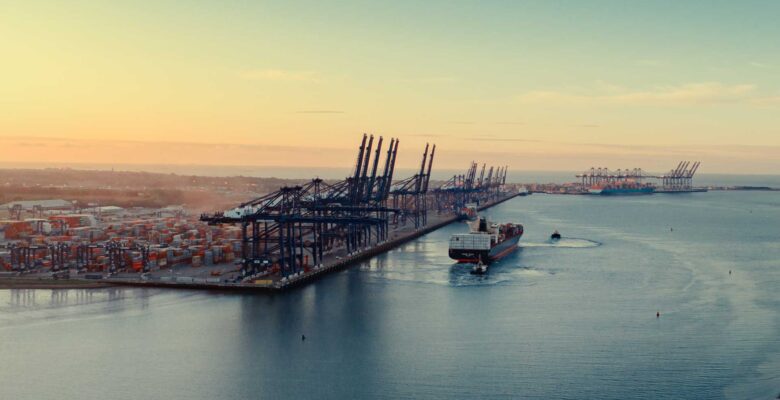
Sea freight review
Global shipping schedule reliability dropped sharply in January due to the Red Sea impact, with just 51% of vessels arriving on time. Outside of the pandemic disruptions this is extremely low – pre-pandemic normality tended to be between 70-80%.
Of course, ships diverting away from the Red Sea and sailing round the tip of southern Africa were going to be late and we all expected that, but what is perhaps less intuitive is that many trades unrelated to the Red Sea also saw sharp reductions.
For example, transpacific vessels into the US West Coast as well as transatlantic vessels from Europe to US East Coast which clearly do not go through the Red Sea have also seen a sharp drop in the past 2 months to less less than half of all vessels arriving on time.
This is part of a “contagion” effect whereby the Red Sea disruptions reverberate through the system and also impact non-related trades likely through vessel transfers to add capacity for the Red Sea diversions and changes in schedules to accommodate cargo suddenly in need of new routing and/or port related issues.
This crisis is different from those preceding it, most notably the vessels need to divert away from the Red Sea and sail around the Cape of Good Hope (COGH), with corresponding surcharges to compensate for the extra vessel costs.
Ideally shippers would pay a temporary surcharge based on the net difference in operational expense averaged over the vessel’s capacity of the vessel, while supply is short relative to demand.
However, the short-term supply and demand spike created by the initial diversion away from the Red Sea, and the carriers diversion of capacity for the longer sailing transit via the Cape is creating different dynamics in other markets.
India to US shipping line have substantial general rate increase (GRI) and peak season surcharge (PSS) plans for March and even though many carriers have one to two week cargo backlogs uncertainty remains that there will be sufficient demand for the increases to stick.
The ‘Red Sea’ spike will disappear completely, and quickly swing the other way, when carriers are able to resume passage through Suez and more new ultra-large container ships are delivered.
However, in the near term, this does mean that carriers may be in a stronger position to add more general rate increases (GRI) or at least resist any further decreases in rates.
We are starting to see some shortages of equipment in key demand locations due to the Red Sea disruption, but this is also a structural issue of supply and demand imbalances across individual port pairs and lower port utilisation affecting carriers’ schedule reliability and capacity.
While some shippers seek to benefit from existing low rates these may not be attractive to carriers as demand changes and shippers interested in stability should be prepared to pay a modest premium for that assurance of supply.
If you have any questions or concerns about the issues raised here, or would like to discuss their wider implications, please EMAIL Colin Redman.
